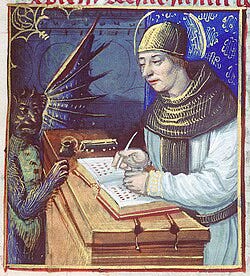I’ve worked as a proofreader for a printing company, an editor of various kinds of text, and an English professor in colleges and a university. This means I’ve gotten rather good at spotting typos.
In fact, just for publicizing one typo, I was featured in a January 2 article in the Toronto Star, and interviewed by three different TV channels. It must have been a slow news day. The typo in question was on a sign installed by the City of Toronto, alerting visitors to the proximity of a walking and cycling path along Lakeshore Blvd. Unfortunately, the sign read “Lakeshore Trial”. I posted this on Facebook, and two weeks later the media started to call me. One of the news crews said they had spotted a similar sign nearby, pointing to the city centre, that gave directions to “Downton.”
A few weeks later, I noticed a poster in the subway promoting a system that allows users to send a discreet text advising the commission of a security problem. Someone in their office, though, spelled the word as “discrete,” a common error. I reported this, and the posters were eventually corrected. No publicity this time, though.
In all my years of grading student papers, my favourite typo was in a woman student’s account of her senior prom. I had suggested students use sensory details to describe a memorable experience. This one certainly would have been, because she wrote: “As I sat next to my boyfriend, I smelled the sweet scent of his colon.” When I stopped laughing, I realized her spell-checker, as spell-checkers do, had given her a list of words with similar letters to whatever she had typed… she simply chose the wrong one.
Titivillus is a demon said to introduce errors into the work of scribes. This is a 14th century illustration of Titivillus at a scribe's desk. (Wikipedia)
Another typo concerning, er, special body parts: “An advertisement in the Sunday and Monday editions of The News Tribune in Tacoma left out a single letter in quite the unfortunate spot, NBC station KING of Seattle reported . "Are you interested in Pubic Charter Schools?" the ad mistakenly read. This was our mistake," Jim Spady, a spokesperson for the Washington Charter School Resource Center, told KING.” (nbcnews.com)
I read somewhere about a matched pair of typos: the first in a news story, the second in a correction for the typo in the first one. It went something like this: “The newspaper regrets referring to Det. Smith as a defective in the police force. It should have read ‘a detective in the police farce.’”
Here are a few famous typos. The first was in an early English version of the Bible. Evidently, its creators ignored the 11th Commandant: “Thou shalt not commit typos.” Here’s what happened: “The Wicked Bible, also sometimes called the Sinners’ Bible or the Adulterous Bible, was created by the omission of just three letters. When it was printed in London in 1631, the publisher skipped a crucial word in the Ten Commandments. The text, therefore, instructed readers, ‘Thou shalt commit adultery’.” (reviewstudio.com)
I hate to correct a beloved comic figure’s faith in spinach as a super source of iron, but this myth is due to a typo — in this case, a decimal in the wrong place. “In 1870, a German chemist named Erich von Wolf was measuring the iron content of various foods. A misplaced decimal recorded spinach as having 35 grams of iron rather than 3.5 grams. It took 67 years for this mistake to be discovered.” (reviewstudio.com).
Finally, a dictionary entry that accidentally invented a new word, “dord.” In 1939, an editor for Webster’s International Dictionary discovered the word in the 1934 edition …supposedly a synonym for “density,” used by chemists and physicists. … Eventually, the source was traced to an editor’s note of ‘D or d’, intended to show that the word ‘density’ could be upper or lowercase. The note had been accidentally incorporated into the dictionary as a brand-new word. (reviewstudio.com).
I’ve spotted typos in newspaper headlines, billboards, book covers, and the like. How can people miss such obvious errors as they’re checking the text? I believe it’s a cognitive problem. We assume something that’s so large and obvious must be correct, and therefore we don’t look at it carefully. And the results can be em-bare-assing.
What’s your favourite typo?
ps. I left one typo in this article… did you notice it?
Enjoy my work? Encourage me this way …








Wonderful piece, John! I see so many typos, both in print and on TV, that I just shrug.
Good Punctuation Saves Lives
"Let's eat Grandpa."
"Let's eat, Grandpa."